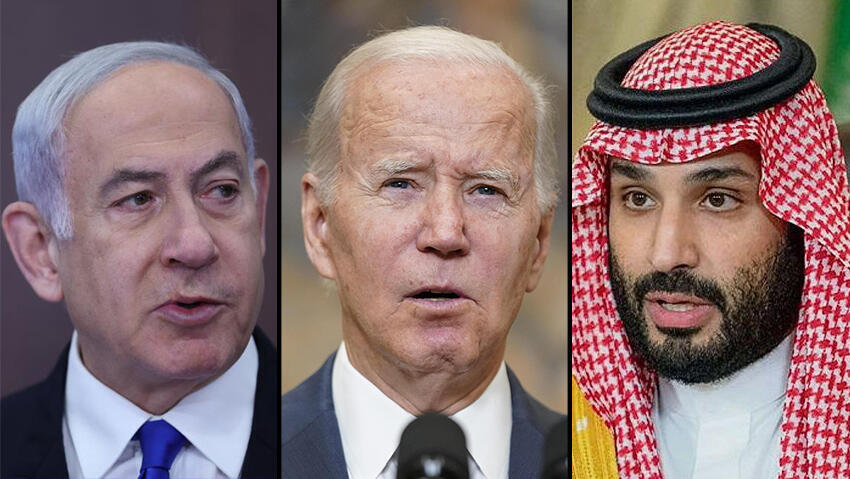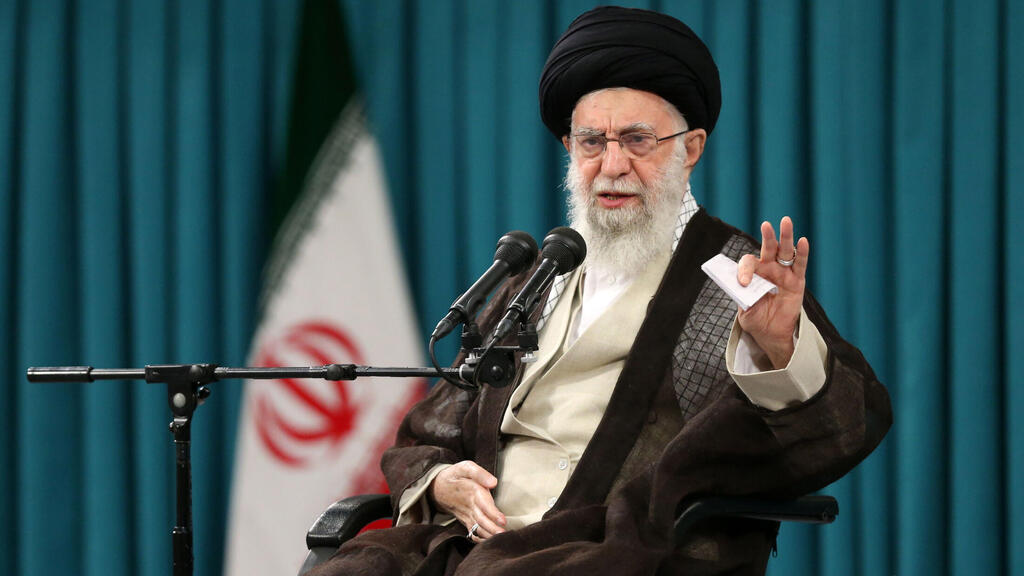After the White House's announcement last week that there is the basic infrastructure for a normalization agreement between Israel and Saudi Arabia, the United States cooled the spirits in the Middle East on Tuesday night. "We don’t have a formal framework and we don’t have the terms ready to be signed," said US State Department Deputy Spokesman Vedant Patel during a press briefing. "There’s still lots of work to do, and we’re continuing to work that process."
Read more:
"We don’t have a formal framework, but the key elements of a pathway, of course, have been on the table. And that’s something that we’re continuing to work toward," he also said.
2 View gallery


Benjamin Netanyahu, Joe Biden, Mohammad Bin Salman: No normalization deal has been agreed on
(Photos: Yonatan Zindel, Reuters, AP )
On Friday, White House National Security Council spokesman John Kirby said that "all parties have formulated a basic framework for what we can strive for," and noted that the Americans are cautious about explicitly disclosing the details and demands from each side of the agreement.
Kirby said that several common denominators are moving the agreement forward - chief among them is Iran, which threatens the United States, Saudi Arabia and Israel. "We cannot say that we discussed something definitive," he said.
The existence of a basic infrastructure for an agreement between Saudi Arabia and Israel was already reported in August in the "Wall Street Journal," which claimed that there were "general outlines" for the agreement between the countries. According to the various reports, Saudi Arabia has made it clear that it will not settle for less than the promises that require the US to protect it if it faces an attack - such as the one attributed to Iran in September 2019, when Saudi Arabia's oil facilities were attacked.
The Palestinian issue is still subject to controversy, with some sources familiar with the negotiations saying that Saudi Arabia will not agree to an agreement without concessions from Israel, and others who say that Saudi Arabia will not wait for the Palestinians.
2 View gallery


Iran's Supreme Leader Ali Khamenei said countries that wish to normalize their relations with Israel are "betting on the losing horse'
(Photo: EPA / IRAN SUPREME LEADER OFFICE)
"The normalization will be between Israel and Saudi Arabia - and if the Palestinians object, the kingdom will continue on its way," American officials told the Reuters news agency. "Saudi Arabia supports a peace plan for the Palestinians, but this time it wanted something for itself and not just for them."
Saudi Crown Prince Mohammed bin Salman himself said last month in an interview with "Fox News" that the kingdom is getting closer to normalization with Israel, and spoke of Israel's need to "make life easier for the Palestinians" - but did not mention the establishment of a Palestinian state. Nevertheless, diplomats and regional officials said that the crown prince is insisting on certain commitments from Israel to show that he is not abandoning the Palestinians, and that he wants to preserve the possibility of a two-state solution.
In the shadow of the normalization talks between Israel and Saudi Arabia, senior officials in the Arab world voiced calls against Riyadh in order to prevent the imminent move. The last of them, Iran's Supreme Leader Ali Khamenei, said Tuesday that countries that wish to normalize their relations with Israel are "betting on the losing horse." Iranian President Ebrahim Raisi, Hezbollah Secretary General Hassan Nasrallah and Palestinian Authority President Mahmoud Abbas also condemned the contacts in the last two weeks.
Prime Minister Benjamin Netanyahu on Tuesday strongly attacked Khamenei's words, saying that "while Khamenei's terrorist regime exports ruin and destruction, Israel promotes progress and peace." According to Netanyahu, "just as Iran did not prevent us from achieving the Abraham Accords, Iran also will not prevent us from further expanding the circle of peace for the benefit of the citizens of Israel, the peoples of the region and all of humanity."

